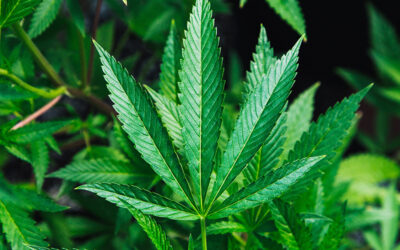Updated September 2019
The state of New Hampshire has taken some steps toward creating reasonable cannabis access policies that its constituents have shown support for, but it still has a ways to go. Learn more about New Hampshire marijuana laws below.
Recreational Marijuana in New Hampshire
Is marijuana legal in New Hampshire? In short, no. However, on July 18, 2017, New Hampshire’s new governor Chris Sununu (R) signed into law House Bill 640, which makes the first and second offense of possession of up to three quarters of an ounce of cannabis or up to five grams of hash a civil offense punishable by a $100 fine, rather than a criminal offense. A fine of up to $300 for any subsequent offense within three years may be applied. A fourth offense within a three-year period may result in a person being charged with a misdemeanor.
Under New Hampshire marijuana laws, police cannot arrest someone for a cannabis violation, and minors caught with possession are subject to a delinquency petition. The money collected from fines will go to a fund dedicated to alcohol and drug abuse prevention and treatment.
With the passing of the most recent law, New Hampshire became the 22nd U.S. state to decriminalize marijuana and the last of the New England states. It went into effect 60 days after signing.
Medical Marijuana in New Hampshire
New Hampshire took a huge step forward by passing a comprehensive medical marijuana law in 2013. Gov. Maggie Hassan signed House Bill 573 to legalize medical marijuana on July 23, 2013, but the rollout was plagued with delays and the first dispensary didn’t open until April 2016. Under the law, registered patients are allowed to possess up to 2 ounces of usable marijuana.
The state currently has four open and operational dispensaries. The law does not allow for qualified patients to cultivate marijuana at home.
In order for patients to be eligible for New Hampshire’s Therapeutic Cannabis Program, a licensed physician, advanced practice registered nurse, or a physician assistant must issue a written certification that certifies that a patient has BOTH a condition listed here AND a symptom listed in the second list:
CONDITIONS:
- Amyotrophic Lateral Sclerosis (ALS)
- Alzheimer’s Disease
- Cancer
- Chronic Pancreatitis
- Crohn’s Disease
- Ehlers-Danlos Syndrome
- Epilepsy
- Glaucoma
- Hepatitis C
- HIV/AIDS
- Lupus
- Multiple Sclerosis
- Muscular Dystrophy
- Parkinson’s Disease
- Post-traumatic Stress Disorder (PTSD)
- Spinal Cord Injury or Disease
- Traumatic Brain Injury (TBI)
- Ulcerative Colitis
SYMPTOMS:
- Agitation of Alzheimer’s Disease
- Chemotherapy Induced Anorexia
- Elevated Intraocular Pressure
- Moderate to Severe Chronic Pain
- Moderate to Severe Vomiting
- Nausea
- Severe Pain That Has Not Responded to Previously Prescribed Medication
- Persistent Muscle Spasms
- Seizures
- Wasting Syndrome or Cachexia
CBD from Hemp Oil in New Hampshire
Hemp-derived CBD products are legal under Federal Law in the United States; however, individual state laws are dynamic and fluid. Individual states may enact their own laws governing hemp-derived CBD.
Cultivation of Cannabis in New Hampshire
Growing cannabis for medical or personal purposes remains illegal.
Hemp can be cultivated legally by licensed growers. Governor Maggie Hassan House Bill 421 in July 2015, authorizing the University of New Hampshire to grow industrial hemp for research purposes. In July 2019, Gov. Chris Sununu signed House Bill 459 to amend the state’s existing hemp law. The new bill officially legalizes hemp and establishes a committee to study the federal guidelines on growing hemp.
Legal Status of Other U.S. States
Stay up to date on the latest state legislation, referendums, and public opinion polls. Our Marijuana Legalization Map allows you to browse the current status of medical and recreational marijuana laws in other U.S. states and territories.
Sources
- http://norml.org/laws/item/new-hampshire-penalties-2
- http://medicalmarijuana.procon.org/view.resource.php?resourceID=000881
- https://www.mpp.org/states/new-hampshire/
DISCLAIMER: The information contained in this website is for general information purposes only; it does not constitute legal advice. Although we endeavor to keep the information up to date and correct, we make no representations or warranties of any kind, express or implied, about the completeness, accuracy, reliability, suitability or availability with respect to the website or the information, products, services, or related graphics contained on the website for any purpose. Therefore, any reliance you place on such information is strictly at your own risk.
| Table | Table |






